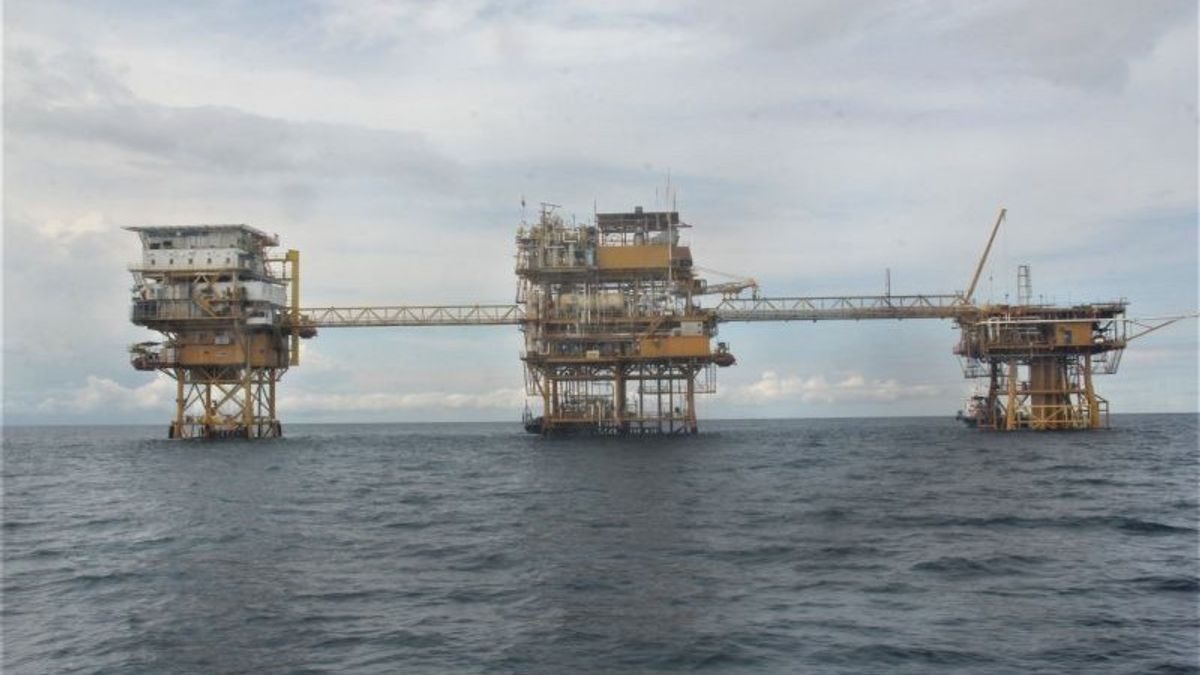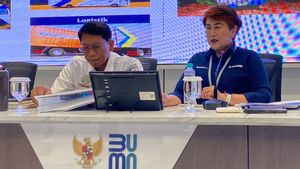JAKARTA - Energy analyst from the Institute for Energy Economics and Financial Analysis (IEEFA) Putra Adhiguna said that during the energy, oil and gas transition period has an important role to play in maintaining Indonesia's energy security, therefore it is important to see the government's seriousness in responding to this situation.
The barometer from the Oil and Gas Bill, if in doubt determines this, this oil and gas transition could also have an impact. The Oil and Gas Bill will be a barometer of how serious Indonesia is in responding to the transition period," said Putra as quoted by Antara, Tuesday, November 22.
The Indonesian government is accelerating the energy transition from fossil energy to new and carbon-free renewable energy.
The Draft Law on Oil and Gas (RUU Migas) is an important element to support the realization of the energy transition while maintaining national energy security.
He explained that the Oil and Gas Bill is a fundamental thing that must be completed by the government to provide legal certainty in the oil and gas sector.
Moreover, the Indonesian government currently has a production target of 1 million barrels of oil per day (bph) and gas of 12 billion cubic feet per day (bscfd) by 2030.
However, with the ongoing oil and gas bill process, Putra assessed that this would affect investor views to enter the oil and gas industry in Indonesia.
The time span from investment to oil and gas sector production is quite long, it can reach 5 to 10 years. I think investors have started to be careful seeing not only from potential, but also legal certainty and future policies," he explained.
Executive Director of the Reforminer Institute, Komaidi Notonegoro, added that when it comes to energy transition, there are two rules that become the legal basis. Both are the Oil and Gas Law and the New Renewable Energy Law (EBT) which have yet to be resolved.
"Unfortunately it has become a habit in us, it seems that we are busy at the end or at the surface, but fundamentally untouched. Even though if the government is committed, there should be a legal umbrella from the start, don't wait until there are pros and cons after all the new roads have become concerned," said Komaidi.
Especially for the Oil and Gas Bill, Komaidi added that the regulation is fundamental for investment and lifting targets, so it needs to be completed immediately.
He noted that the oil and gas law process began to be discussed in 2008 and had been canceled several times or experienced a judicial review process at the Constitutional Court.
"Why haven't it been completed for 14 years? even though when talking about oil and gas as a strategic commodity, it should actually become a shared awareness to immediately resolve the bill because it involves the lives of many people, that should be the point of view," he explained.
Not long ago, Commission VII of the DPR held a Hearing Meeting with the Special Task Force for the Implementation of Upstream Oil and Gas Business Activities (SKK Migas). At this forum, both parties agreed to immediately complete the revision of the Oil and Gas Law.
Deputy Chairman of Commission VII DPR Maman Abdurrahman said the Oil and Gas Bill would be used as the DPR's initiative law so that discussions could be completed quickly, no later than June 2023.
"So it has become a law product, it will be completed no later than June 2023 as a legal umbrella for institutional strengthening and certainty of upstream oil and gas investment in Indonesia," said Maman.
The English, Chinese, Japanese, Arabic, and French versions are automatically generated by the AI. So there may still be inaccuracies in translating, please always see Indonesian as our main language. (system supported by DigitalSiber.id)








